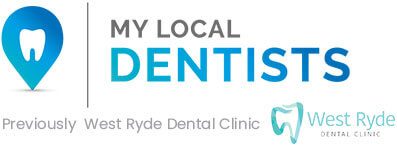 Your health is one of the most important things in your life, right? And if your health is important to you, your dental health should be important to you, and fighting gingivitis should be very important to you.
Your health is one of the most important things in your life, right? And if your health is important to you, your dental health should be important to you, and fighting gingivitis should be very important to you.
This is because to keep yourself healthy you need to prevent toxins and bacteria and from entering your mouth or body. Because your mouth is an easy target for bacteria, poor oral hygiene or preventive care can cause the early stages of gum disease, also known as gingivitis. Gingivitis can lead to far more serious conditions.
Periodontal disease is common in Australia with nearly a quarter of the population suffering from it. Those over 65 have rates approaching 53%. And the first step to periodontal disease is almost always gingivitis, or inflammation of gums.
By learning about gum disease, its symptoms, and how to deal with it, you’ll know if or when you’re developing a problem that requires gingivitis treatment. If you are aware of the signs to look out for, you’ll also have an idea of how to prevent gingivitis or catch it early enough to reverse it with the help of My Local Dentists West Ryde.
To help you with this task, My Local Dentists West Ryde has put together this handy collection of information about gingivitis, its causes, symptoms, and treatments.
What is Gingivitis?
Gingivitis is gum inflammation, an extremely common, early, and treatable form of periodontal disease. But if it is untreated, it can lead to inflammation and infection in the gums, teeth, and periodontal ligaments that link your teeth to the bone and the tooth socket. Eventually, it can lead to tooth loss, or worse.
Plaque buildup is the culprit in gingivitis. If plaque isn’t removed, it turns into tartar (calculus), which gets trapped at the base of your teeth. This leads to sensitive, infected, and inflamed gums. If this condition is left unaddressed, it can turn into periodontitis, causing receding gums and worse.
Signs & Symptoms
Gum disease is often painless, which makes it critical to detect any of the following symptoms:
- Swollen, red, or tender gums
- Gums that bleed during brushing or flossing
- Receding gums, or gums that separate from the tooth
- Chronic bad breath or an ongoing bad taste in your mouth
- Loose teeth
- Alterations in how your teeth come together
- Changes in the fit of partial dentures
- Pus around the teeth and gums
Risk Factors for Gingivitis
If any of the factors mentioned below apply to you, pay extra attention to your teeth and gum line.
- Insufficient or incorrect oral hygiene is one of the most easily avoided factors in gingivitis.
- Smoking/tobacco use is one of the most common risk factors associated with gum disease. It can also decrease the chances of successful treatment. Smokers are seven times more likely to have gum disease than non-smokers.
- Hormonal changes including puberty, pregnancy, menopause, and monthly menstruation cause increased sensitivity and inflammation in your gums.
- Poor nutrition makes it more difficult for the body to fight gum disease, and some vitamins are demonstrated to improve gum and bone health.
- Medications for many conditions can affect oral health.
- Chronic diseases, such as diabetes, HIV, and cancer retard the body’s ability to fight gingivitis.
Prevention of Gingivitis
Gingivitis may be prevented or defeated using simple preventative measures:
- Brush your teeth, gums, and tongue daily. Teeth should be brushed at least twice a day. Upon awakening, at night, and after meals if possible.
- Floss at least once daily, ideally before going to bed.
- Use a soft-bristled toothbrush, which is less likely to damage teeth or gums, and don’t brush too hard, which can actually damage teeth. Replace your toothbrush every three months, or after illnesses like the flu.
- Use a toothpaste with fluoride.
- Do not snack in the middle of the night.
- Chew on gum, rinse with water, or brush after snacking.
- Rinse with an effective mouthwash – My Local Dentists West Ryde can help you make a good choice.
- Visit My Local Dentists West Ryde at least once every six months for a routine cleaning and examination.
- Avoid sugary foods, tobacco products, and drinking excessive amounts of alcohol or using recreational drugs.
- Be aware of additional risk factors. Ageing, smoking, diet and genetics can increase the likelihood of gingivitis. If you have an increased risk factor, be sure to talk with My Local Dentists West Ryde about it.
My Local Dentists West Ryde Advantage
At My Local Dentists West Ryde, our treatments and service are 100% personalised to you and your needs. Our dentists are highly motivated and accredited practitioners with graduate degrees from the University of Sydney.
As well as our dentists, the supporting staff at My Local Dentists West Ryde are extremely dedicated and experienced to guarantee that each visit with us is as comfortable as possible.
GAP FREE
General Check-up, Scale and Clean, X-rays and Fluoride treatment (with any health insurance)
*For new patients only
Call your West Ryde dentist on (02) 9809 7000 or visit us at Shop 20 West Ryde Marketplace 14 Anthony Road in West Ryde.
